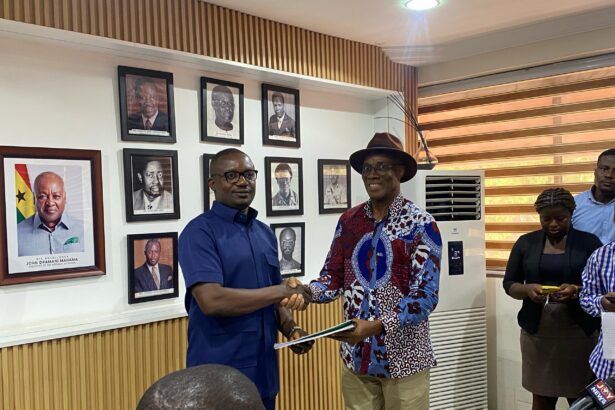
A Technical Committee, established to formulate strategies for private sector participation in the Electricity Company of Ghana (ECG) and the Northern Electricity Distribution Company (NEDCo), has officially submitted its findings to the Energy Minister, John Jinapor. The report outlines three distinct privatization models aimed at enhancing efficiency, service delivery, and financial sustainability within the electricity distribution sector.
Three Proposed Privatization Models
1. Full Concession Model:
The Committee’s primary recommendation is the full concession model, under which ECG’s entire distribution network would be transferred to a private concessionaire. This model mirrors the previous Power Distribution Services (PDS) arrangement, wherein a private entity would assume operational control, infrastructure management, and customer service responsibilities for a specified period. The objective is to leverage private sector expertise and investment to improve operational efficiency and service delivery.
2. Regionalized Multi-Lease Model:
Alternatively, the Committee suggests a segmented approach, where ECG’s operational zones would be divided into four or five distinct regions, each managed by separate private entities. This decentralization strategy aims to foster competition among service providers, leading to improved efficiency and tailored solutions for regional electricity distribution challenges.
3. Service Franchise Model:
The third proposal focuses on a service-based franchise arrangement, allowing private companies to manage low-voltage electricity distribution and direct customer service. This model prioritizes enhanced customer experience, ensuring prompt service delivery, efficient fault response, and improved network reliability at the consumer level.
Challenges Hindering ECG’s Performance
Chairman of the Technical Committee, Ing. Jabesh Amissah-Arthur, emphasized that ECG’s operational inefficiencies stem from governance and management shortcomings. The Committee identified nine key challenges affecting the company’s performance:
Two challenges pertain to administrative and governance deficiencies within ECG.
Three operational inefficiencies were highlighted, including outdated infrastructure and revenue collection issues.
Three external factors beyond ECG’s control were also identified, such as regulatory constraints and macroeconomic influences.
One challenge was classified as a hybrid issue, involving both internal and external factors.
“We analyzed the core impediments affecting Ghana’s electricity distribution system and found that governance and management issues are at the heart of ECG’s struggles. Addressing these will be crucial for any privatization model to succeed,” Amissah-Arthur stated.
Government’s Next Steps
On April 2, 2025, during a meeting with the Technical Committee, Energy Minister John Jinapor formally received the roadmap for ECG and NEDCo’s privatization. The government is expected to review the proposals, consult relevant stakeholders, and determine the most viable model to implement. The final decision will consider economic feasibility, regulatory compliance, and the long-term sustainability of Ghana’s power distribution sector.
This latest development signals a significant step towards reforming Ghana’s electricity distribution landscape, with a focus on ensuring reliable, affordable, and efficient power supply for consumers nationwide.
Story by: Mercy Addai Turkson #ahotoronline.com


